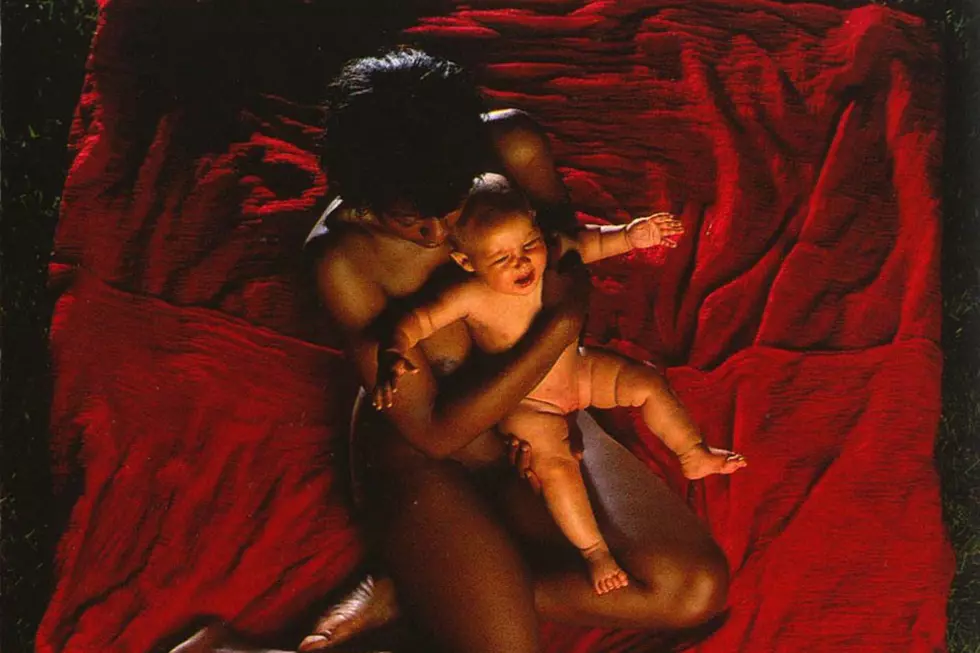25 Years Ago: The Afghan Whigs Bid Farewell to Sub Pop With ‘Uptown Avondale’
Were there ever any confusion over the difference between the Afghan Whigs and their Sub Pop brethren, it was put to rest when the Cincinnati outfit released a five-song EP in October of 1992 made up mostly of soul covers. Designed as sort of a goodbye to the label after the band had been scooped up Elektra Records, Uptown Avondale showed not just a deeper set of influences, but a growing musical maturity that carried over to the majors.
“That is the bridge between the two versions of the Whigs,” frontman Greg Dulli would say in the 33 1/3 book dedicated to the LP which would follow Uptown Avondale, the twisted masterpiece Gentlemen.
The grunge explosion had been reverberating all year, with the big labels desperate to sign the next Nirvana or Pearl Jam. Coming from Sub Pop, it probably didn’t matter that the Whigs neither sounded nor looked like the Doc Martens-and-flannel crews landing on the charts and airwaves as long as they had the indie cred.
“We had developed a pretty good audience by that time, and [the January ’92 LP] Congregation had done pretty well,” Dulli later said. “We toured a lot – I think we did something like 250 shows on the Congregation tour – and there were, like, 20 labels after us. We were actually beginning to write what would become Gentlemen during that tour and started to whip out some of [the Uptown Avondale] songs about halfway through. That was probably as road-tested as we ever were, so I think we wanted to try something new and see what would happen.”
The result was four covers from the heyday of the Motown and Stax labels for the music that influenced the Afghan Whigs’ sound in ways that would become more apparent as they grew with each album. The majority of the songs had their origins in the Holland–Dozier–Holland and Frazier-Owens songwriting and production teams of the ‘60s, but had been made popular by the marquee acts on those respective labels.
Uptown Avondale opens with a tortured version of the Freda Payne hit “Band of Gold,” a song with a controversial interpretation but one which ends either way in heartbreak following a wedding night gone awry. It’s followed by “True Love Travels on a Gravel Road,” with the Whigs slowing it down to somewhere between the best-recognized interpretations by Elvis Presley and Percy Sledge.
Up next is probably the most well-known cover in the bunch, a take on the Supremes' chart-topping “Come See About Me.” It’s a rendition with a backdrop of dread led by Dulli’s both suave and menacing mannerism, a complete flip on the original’s come-hither promise of eternal happiness, turning it into one of almost hopeless longing.
“One of my favorite Supremes songs ever, and one of my favorite covers that we ever did as a band,” Dulli recalled when the Whigs reunited in 2012. “I think that Holland-Dozier-Holland did lonely and heartbreak as well as anyone in three minutes or less, and that song has no fat on it. It’s just a perfectly written song, lean and mean, and taken to a minor key and adding some distortion, it fit in perfectly with what we were doing and became a song I look forward to playing every night.”
The final cover on the EP is “Beware,” an Al Green deep cut the soul legend buried on the second side of his 1973 LP Livin’ for You. And while Green’s version had an upbeat musical track that belied despondent lines like, “Friends are the reason for so many breakups and breakdowns…around town,” the Whigs turned it into something much more sinister with Dulli screaming, “Ain't nothing I can do to you / To make you love me,” by the song’s end.
To close out Uptown Avondale, the Whigs took the hidden track from Congregation, “Miles Iz Ded,” and remixed it with some heavy effects, making it dancefloor-ready with John Curley’s funk-fueled bass sitting right in the front of the mix. Rechristened “Rebirth of the Cool” as a wink to the 1957 Miles Davis classic Birth of the Cool, it’s an interesting way to leave things sonically, but somehow doesn’t seem out of place in the least.
Just under a year later would see the Whigs breakthrough somewhat to the mainstream with Gentlemen, an album which Dulli has said couldn’t have been made without Uptown Avondale as its precursor.
“I think the best way for me to clear my decks is to play other people’s stuff and to get into something,” he said when talking about the 2004 covers album She Loves You he did with his Twilight Singers collective.
Dulli would later add, “We were ready to become something. The Congregation and Uptown Avondale into Gentlemen evolution was really a bang-bang-bang time in our development. We did all of that in two years. We were kind of on fire during that particular time. It was pretty much a cauldron of creativity.”
Afghan Whigs Albums Ranked in Order of Awesomeness
More From Diffuser.fm









